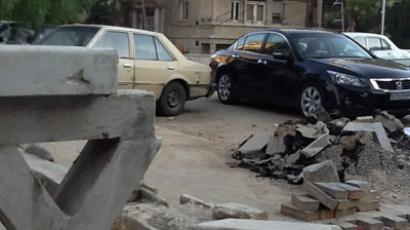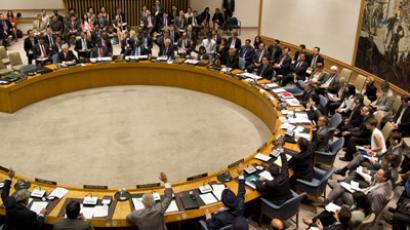‘Assad has become a Gaddafi-like bogeyman’
In their bid to back any kind of opposition to oust the Syrian leadership, Western powers are suffering from "historical amnesia," says reporter Patrick Hayes. He adds that new support for the rebels will follow the UN General Assembly's resolution.
RT: How do you think this UN-wide vote will affect what's happening in Syria, or the international response from here on out?Patrick Hayes: Remember, this is a non-binding resolution, so it is not going to have any direct impact at all. I think in general it is being used to try and step up the pressure on Russia and China to take a stance against Assad. And effectively what it is doing is saying: “We disrespect the sovereignty of Syria and we don’t want the Syrian people to determine their own future.”So, I don’t think something positive is going to come out of this. I just wanted to say about Kofi Annan, though, because what is very striking with this situation is that yes, they can condemn Assad from the UN Assembly, but they do not have any alternative. When Annan was initially negotiating his six-point treaty, his argument was very much: “If you take this off the table, then what else are you going to be left with?”Now no one has an alternative to that at the moment.William Hague, the foreign secretary of the UK, basically said today: “We still want the Kofi Annan plan, but we want to imply that there are consequences if it is not followed.” There are a lot of empty threats going on at the moment, but no one knows what to do.RT: William Hague indeed revealed UK plans to step up its help for the Syrian opposition. He insists that London isn't sending weapons, but only "non-lethal" support. How is it justifying this one-sided approach?PH: He suggested that he’s going to offer non-lethal aid. He has not given specific details of this yet. But it does seem that it is going to be intelligence. It does seem that it is going to be an awful lot of support announced for the rebels over the next few weeks.And of course this comes just after it was revealed that there has been a secret plan to basically allow the CIA to assist the rebels as well. The thing I find very striking about this is this real historical amnesia that’s taking place among Western leaders. Well, they don’t really know who the opposition is. There are lots of concerns about the makeup of it, the jihadi elements. There are a lot of people who the West would not like to do business with. But they’re stuck into this mentality that they’d rather help anyone get into power, they’d rather support any opposition in Syria, than they would support Assad. Assad has become this bogeyman just like Gaddafi before him. And they just say, “We need to get rid of him and everything will be ok.” It’s a naive approach that will do no help.RT: Russia voted against the resolution, calling it one-sided, because it only pressures the government to end the violence, not the rebels. Why does the international community continue to take that stance?PH: I think it is very striking that, you know obviously, Saudi Arabia has basically drafted this document which does not mention the opposition at all. It is completely condemning Assad. And we have over that past couple of months as well a complete cherry-picking of who the West wants to work with, which countries. So you have Syria’s main strategic partner, which is Iran, knocked all out to sit at the negotiation table most of the time. So they are being very selective about who they want to work with.And you can understand why these things are going to fall apart when the West wants everything done on its terms.But I think in general with this resolution Saudi Arabia has drafted it with the support of various allies, and of course of Western supporters as well. They want to put pressure on Russia in particular, but also China, to relax their stance, which is that “we should not get involved in meddling in the affairs of a sovereign country.”RT: We've been reporting on the revelation that President Obama apparently covertly allowed rebel support via the CIA to help oust Assad. Is the US bypassing legal institutions here?PH: Yes, it does seem like they are. And it seems like increasingly, that will be the case. If they can’t get the Security Council to condemn Assad they’ll go through NATO, and they’ll find other covert ways of trying to get rid of Assad. They’ve got a very bloody-minded approach with this, and it could intensify and institutionalize the conflict, making the situation much worse for the Syrian people than it would be if they’d just backed out completely.














